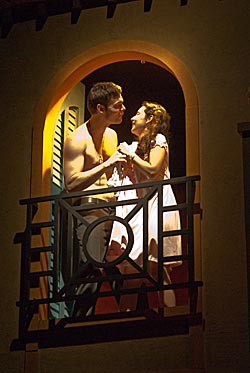Funny that while the fortunes of the sentence flicker, I am immersed in a second consecutive book whose grammatical units–sentences and paragraphs alike–are, one after the other, superlatively made. First it was Netherland, covered in my post yesterday. Now it’s Sybille Bedford’s A Legacy. Fifty pages in, I’m really quite awed. Here’s a sentence about the narrator’s well-to-do German grandparents:
While members of what might have been their world were dining to the sounds of Schubert and of Haydn, endowing research and adding Corot landscapes to their Bouchers and the Delacroix, and some of them were buying their first Picasso, the Merz’s were adding bell-pulls and thickening the upholstery.
And a paragraph that shortly follows:
They took no exercise and practised no sport; they kept no animals–except carriage horses–and none were allowed in the house. The caretaker couple kept a canary in their basement by the furnace, but no truffled nose had ever snuffed the still hot air upstairs, no padded paw had trod the Turkey pile, no tooth had gnawed, no claw ripped the mahogany and the plush, and there was a discreet mouse-trap set in every room. The Merz’s had no friends, a word they seldom used; they saw no-one besides the family, the doctor and an occasional, usually slightly seedy, guest asked to occupy the fourteenth place at the table. They were never alone; when it wasn’t the barber, it would be the manicure. Grandmama Merz had never taken a bath without the presence and assistance of her maid. They did not go to shops. Things were sent to them on approval, and people came to them for fittings. They never read. There was a smoking-room, and a billiard-room nobody used, but there was not so much as a courtesy library, and I cannot ever remember seeing a book about.
Dorothy Parker, a woman not easily scared, called A Legacy “almost terrifyingly brilliant.” I can only account for the terror in her reaction by imagining the encounter with a writer at least her equal for wit and incisiveness posed a threat. The encounter certainly brought out her own incisiveness; her critical comment on the novel (part of an Esquire group review of the best fiction of 1957) begins and ends with these three words. The book’s brilliance is evident from the first page, but, at least so far, it has me feeling merely appreciative.

